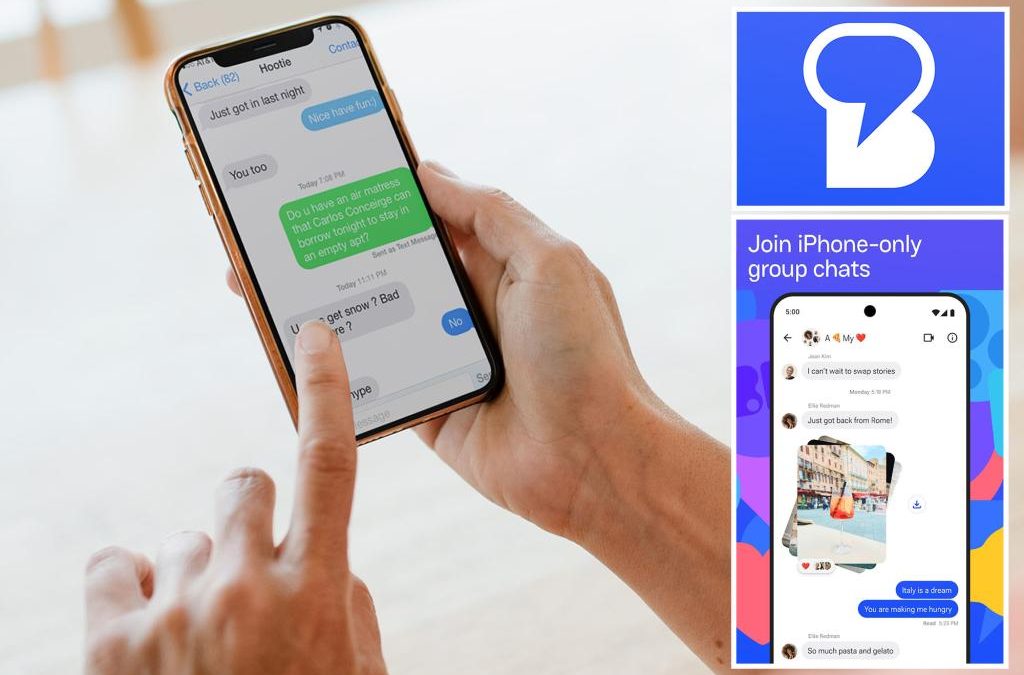A bipartisan group of four US senators and representatives asked the Department of Justice whether Apple violated antitrust laws for shutting down an application that enabled Android devices to text iPhone users via iMessage.
The lawmakers’ letter — signed by Sens. Amy Klobuchar (D-Minn.) and Mike Lee (R-Utah), along with Reps. Jerry Nadler (D-NY) and Ken Buck (R-Colo.) — argued that “Apple’s recent actions to disable Beeper Mini harm competition, eliminate choices for consumers and will discourage future innovation and investment in interoperable messaging services.”
Klobuchar and Lee are the leaders of the Senate Judiciary antitrust subcommittee.
“We also fear these types of tactics may more broadly chill future investment,” said the note, which was sent to the Justice Department’s top antitrust official Jonathan Kanter on Sunday, per a screenshot shared to Instagram’s Threads.
“Thus, we refer this matter to the Antitrust Division to investigate whether this potentially anticompetitive conduct by Apple violated the antitrust laws.”
The saga began Dec. 8, just days after Beeper Mini’s launch, when outages began impacting the app.
A week later, the service interruption persisted, at which point Beeper Mini confirmed in an X post that Apple “deliberately blocked iMessages from being delivered” to about 5% of its users.
As of Dec. 17, Beeper Mini CEO Eric Migicovsky said about 60% of users were restricted from sending iMessages, which are typically only operable between two Apple products, according to The Verge.
Beeper Mini has said it’s able to bring the encrypted messaging software to Android by by reverse-engineering the iMessage protocol.
Migicovsky told TechCrunch earlier this month that Beeper Mini’s tech allows Android users — whose texts notoriously appear in a green bubble for iPhone users — to send blue-bubbled texts to Apple devices.
Beeper does not have access to the contents of users’ messages, the company told TechCrunch. It merely supports iPhone-only features like high-resolution photos and videos as well as read receipts, group chats, emoji reactions and editing and unsending messages, among other features.
An Apple spokesperson insisted to The Verge that Beeper Mini poses a security risk to Apple, leading to its ban.
“We took steps to protect our users by blocking techniques that exploit fake credentials in order to gain access to iMessage,” Apple’s senior PR manager Nadine Haija told the outlet.
“These techniques posed significant risks to user security and privacy, including the potential for metadata exposure and enabling unwanted messages, spam and phishing attacks,” they added.
Lawmakers, however, pointed to Apple’s a Department of Commerce report from earlier this year calling Apple a “gatekeeper” with a “monopoly position,” arguing that the Cupertino, Calif.-based tech giant would engage in anticompetitive treatment “to lock users into Apple’s ecosystem of devices and services.”
They also cited Migicovsky’s December 2021 Senate Judiciary Committee testimony, when he said that “the dominant messaging services would use their position to impose barriers to interoperability” and keep companies like Beeper from offering certain services.
“Given Apple’s recent actions, that concern appears prescient,” they wrote.
A DOJ spokesperson confirmed receipt of the letter to The Post, but declined to speak further on the matter.
Representatives for Apple did not immediately respond to The Post’s request for comment.
Apple has long been under pressure to make its iMessage network as compatible with conversations between Android and iPhones as it is between two iPhones.
News outlet 9to5Mac has reported that Apple may implement Rich Communications Service to make messaging between Android and iPhone users a less terrible experience, where photos and videos wouldn’t be so blurry and all bubbles would be blue.
However, Apple’s own CEO Tim Cook hasn’t seemed too occupied with the contention between the bubble colors, and hasn’t offered much insight into how the company plans to make it easier for iPhone owners to text Android users.
The current solution available, as he said during Vox Media’s 2022 Code Conference last August: “Buy your mom an iPhone.”
Source





